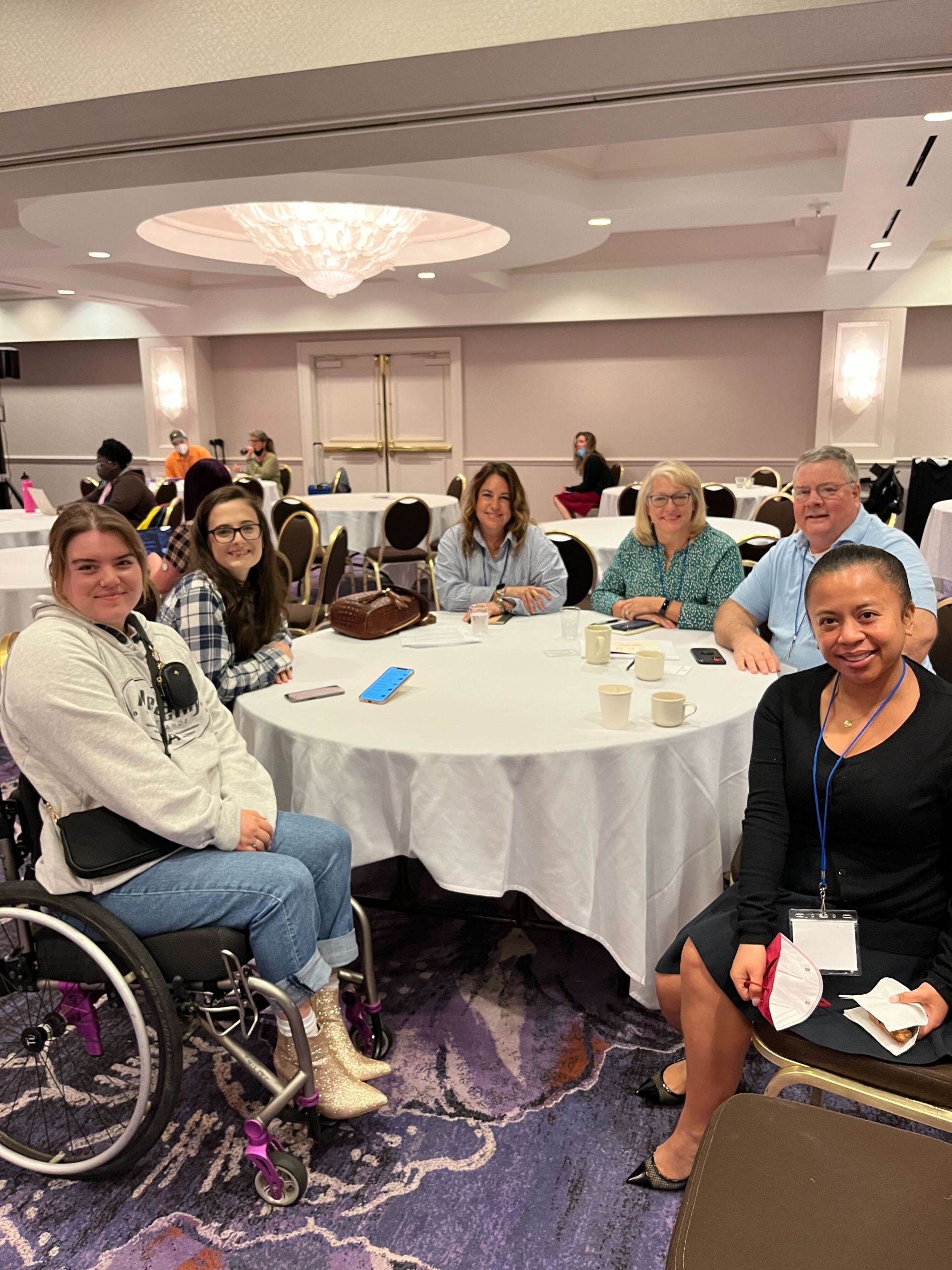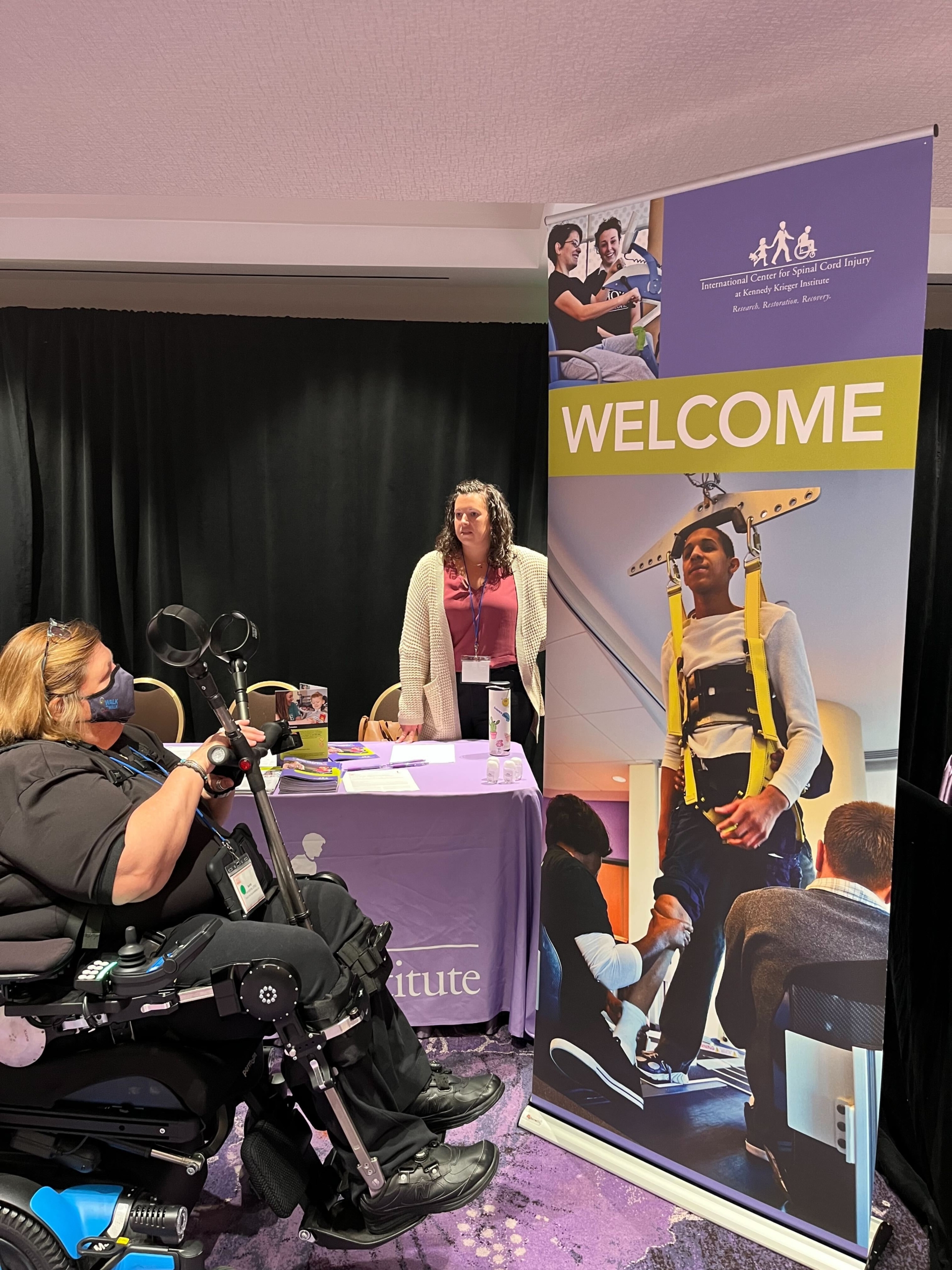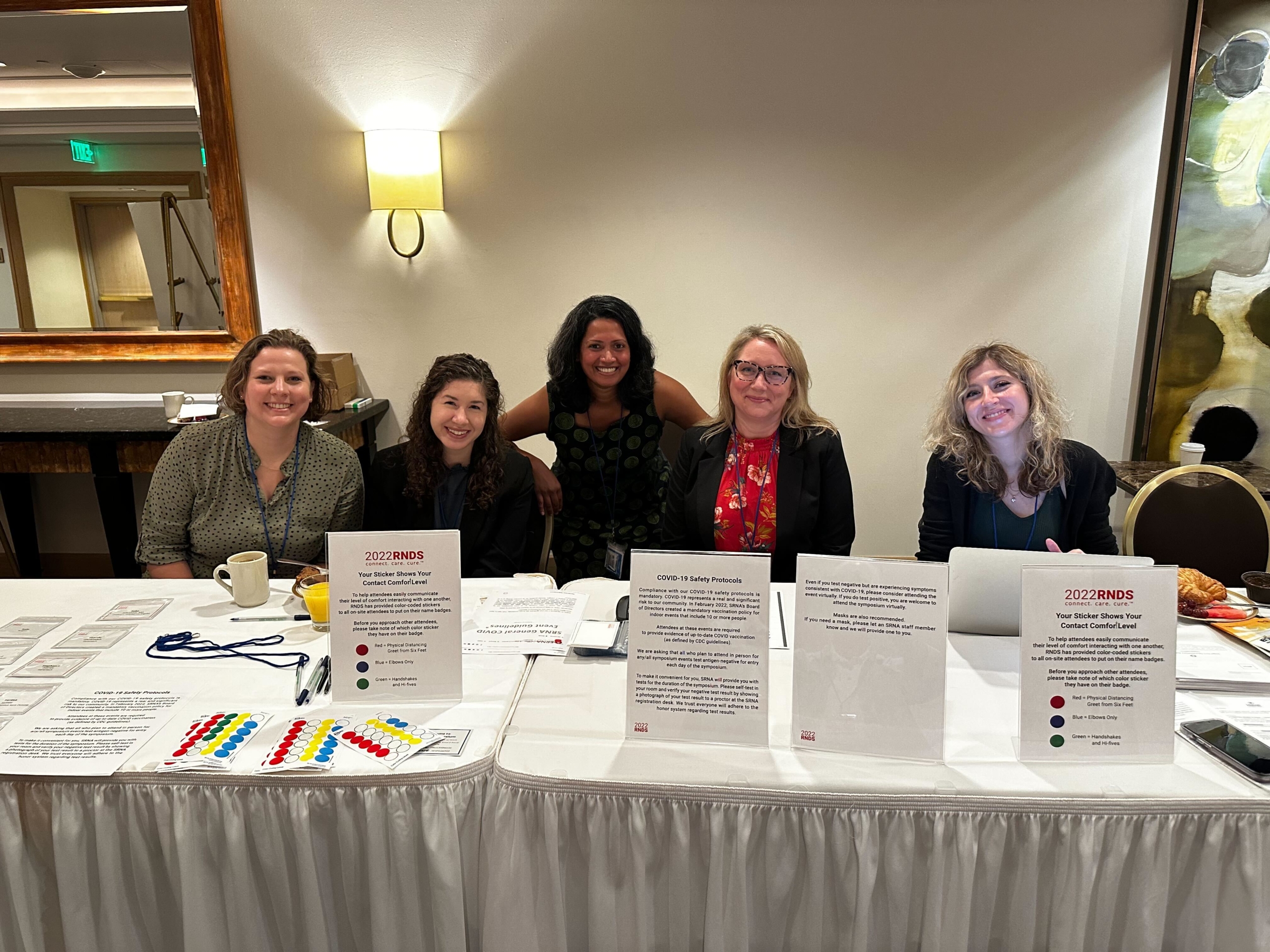A Look Back at the 2022 Rare Neuroimmune Disorders Symposium
The 2022 Rare Neuroimmune Disorders Symposium (RNDS) was our first-ever hybrid symposium, where people could attend in person, online, or a combination of both. The 2022 RNDS was hosted by SRNA, Massachusetts General Hospital, UT Southwestern Medical Center, Johns Hopkins Medicine, Harvard Medical School, Children’s Health Dallas, Johns Hopkins Myelitis and Myelopathy Center, MGH NMO Clinic and Research Laboratory, and the CONQUER Program. Speakers, staff members, and attendees together resulted in 264 people gathering in person and online to discuss, learn, and connect about topics related to rare neuroimmune disorders for a truly international event.
“As was the case last year, it was a privilege to be able to ask questions of the top practitioners in such a complex field of medicine who give so much of their time and are eager to learn from us as well. There is such a sense of caring in this organization. I could feel it right through my computer screen! I floated on all I gained for days!!” – Laurie Sunshine, Maryland, USA
The energy and excitement of those attending in Los Angeles, California, was palpable after a two-year hiatus from in-person symposiums. That energy was mirrored by the online participants, with people logging in from their homes across the world. By offering a hybrid event, the 2022 RNDS was even more accessible and inclusive for the SNRA community and included participants from a combined total of ten different countries for an international gathering of the rare neuroimmune disorders community.
“I look forward to attending the RNDS every year, and 2022 was especially impactful after two years of virtual-only events. The hybrid component was a valuable addition and allowed participation and access to those who attended both in-person and virtually. After five years with SRNA, I still learn new things at every symposium! I look forward to learning and growing with our community as we plan for next year’s event.” -Krissy Dilger, SRNA Research and Program Manager, Ohio, USA
The first day kicked off with a welcome from SRNA President Sandy Siegel and Dr. Benjamin Greenberg of the University of Texas Southwestern, followed by Panel presentations on the diagnosis and treatment of ADEM, AFM, MOGAD, NMOSD, and TM. Sandy shared the history of SRNA, formerly the Transverse Myelitis Association, the collaborative approach of the association, the research and clinical care being done by medical professionals, and the importance of education to support the rare neuroimmune community. Dr. Greenberg described the importance of bringing the community of all the disorders together under one big tent, “there’s a lot we can learn from each other regardless of the letters that come with our diagnosis”. During the following session, five SRNA community members shared their experiences with each disorder: Chantal Banks, Hannah Stadler, Emily Martin, Jodi Arminio, and Sarah Mendenhall. The expert panel asked each person about their pathway to diagnosis, questions about differential diagnoses considered, and treatments. These panelists included Dr. Eoin Flanagan, Dr. Grace Gombolay, Dr. Benjamin Greenberg, Dr. Michael Levy, and Dr. Carlos Pardo.
“Day 1 of the SRNA RNDS brought a surprisingly emotional response from me. I must admit, it caught me off guard. I knew right then that I had found my people. Listening to people who had similar stories as myself and a lot of overlapping symptoms between each diagnosis validated how I have been feeling and provided comfort in knowing I am not alone. The experts truly are just that, they are very knowledgeable and while they continue to learn from us the patients we too learn from their expertise. A huge thank you to SRNA and everyone who brought us all together, you are my people. It was an honor to meet you all in person and this will not be the last time we see one another. It was also an honor to meet Mr. Siegel in person. His passion, emotion, empathy, and genuine care could be felt by all.” – Selena Gagnon, SRNA Peer Connect Leader, Ontario, CA
Day two of the 2022 RNDS included sessions about the long-term treatments and new clinical trials for NMOSD and MOGAD, research and management of symptoms including neuropathic pain and spasticity, respiratory complications of AFM. These were followed by breakout sessions: three tracks for in-person attendees, with one of these tracks livestreamed and an online Q&A session for online attendees. The breakout sessions were focused on three categories: for those recently diagnosed, those who were diagnosed a year or more, and pediatric experiences. The day wrapped up with an open moderated panel session to discuss trending topics in rare neuroimmune disorders.
“During the breaks it was fun to video chat with others who were also attending virtually.” – Jim Lubin, SRNA Executive Committee Member, Washington, USA
Throughout the symposium, people connected over their shared experiences, talked with medical professionals familiar with rare neuroimmune disorders, met SRNA’s partners and supporters in the expo area. Outside of the sessions, these valuable interactions took place both in person and online, available to everyone attending the 2022 RNDS.
“The Siegel Rare Neuroimmune Association delivers what patients need to know year after year and this year was no exception. As an advocacy organization for MOGAD, The MOG Project not only was able to learn a great deal and make invaluable connections to better contribute to our aligned missions, but as patients, we left fulfilled. This year, the brilliant addition of a presentation of patient stories to illustrate the similarities of all neuroimmune disorders put tears in our eyes and motivation to keep advocating in our hearts. Thanks to the SRNA for including us and allowing us to contribute to this great institution!” – Julie Lefelar, The MOG Project, Maryland, USA
During the final day of the symposium, the day began with information about the cognitive, mental health, and neuropsychological aspects of rare neuroimmune disorders. Dr. Christa Hutaff-Lee referenced these worksheets as helpful resources during the session on how to cope with grief, anxiety and loss. Following sessions addressed quality of life topics including bowel, bladder, and sexual dysfunction, adaptive tools, and information on how to navigate insurance. Attendees heard from more community speakers during a panel conversation about disability moderated by Dr. GG deFiebre and participants Janelle Hewelt, Cyrena Gawuga, and Paul Garrett. The remaining sessions covered the latest in research and a final Q&A session.
“I’ve heard so much about how invaluable RNDS is for our community members since I joined the team this past spring. Seeing that impact for the first time in October and being able to truly feel the love and connection from people all over the world, really solidified for me just how important this work is. It has moved me to my core.” – Skye Corken, SRNA Communication & Engagement Coordinator, Seattle, WA
We are grateful to everyone who contributed, attended, spoke, and supported the 2022 Rare Neuroimmune Disorders Symposium. This event was made possible through the generosity and support of our sponsors Alexion, AstraZeneca Rare Disease, Genentech, Horizon Therapeutics, and the Kennedy Krieger Institute. Anyone can revisit the sessions from the 2022 RNDS and 2022 Pre-RNDS on the SRNA YouTube Channel.
We invite all attendees to fill out our 2022 RNDS survey. Your feedback will help us as we plan education programs next year. In 2022, we incorporated several suggestions from our community. Please take a few minutes to share your ideas that will impact next year’s event!








